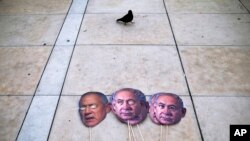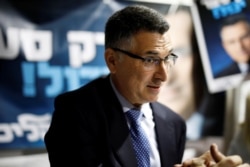Israel is headed for a fourth election in under two years, as the government failed to pass a budget and also faces a third lockdown because of spiking COVID-19 cases.
Prime Minister Benjamin Netanyahu, whose coalition government has been in power for just seven months, said the March elections were not his idea and blamed his coalition partner, the Blue and White Party, headed by former army chief Benny Gantz.
Netanyahu said Gantz reneged on promises he had made, making the vote necessary, but added that he is confident he will win again.
For his part, Gantz accused Netanyahu of wanting to drag Israel into a period of uncertainty to divert attention from his upcoming trial on corruption charges.
Netanyahu faces three separate charges of fraud and breach of trust in the trial that is due to start in February.
Yohanan Plesner of the Israel Democracy Institute said that was Netanyahu’s main motivation in not passing the budget, as he wanted to remain in power throughout his trial.
A new study by the Israel Democracy Institute found that Israel holds elections every 2.3 years, more than Spain, Britain and Italy.
Many Israeli analysts say Netanyahu, who is Israel’s longest-serving prime minister, would like to pass a law that makes it illegal to prosecute a sitting prime minister. Others say he is waiting for President Reuven Rivlin’s term to finish next year and will try to get that job, which comes with immunity from prosecution.
Netanyahu also faces new challenges in this election. Because Israel is a parliamentary democracy, the party with the largest number of votes gets the first chance to form a coalition of at least 61 seats in the 120-seat Knesset.
A new party headed by Netanyahu rival Gideon Saar is polling well and could form a coalition with several other right-wing parties, leaving Netanyahu's Likud out of the government.
The election is also being held as Israel faces a third wave of COVID-19. The country will need to figure out how coronavirus patients and those in isolation will be able to vote.
Israel has just started its vaccination campaign and aims to vaccinate two million people by the end of January.







